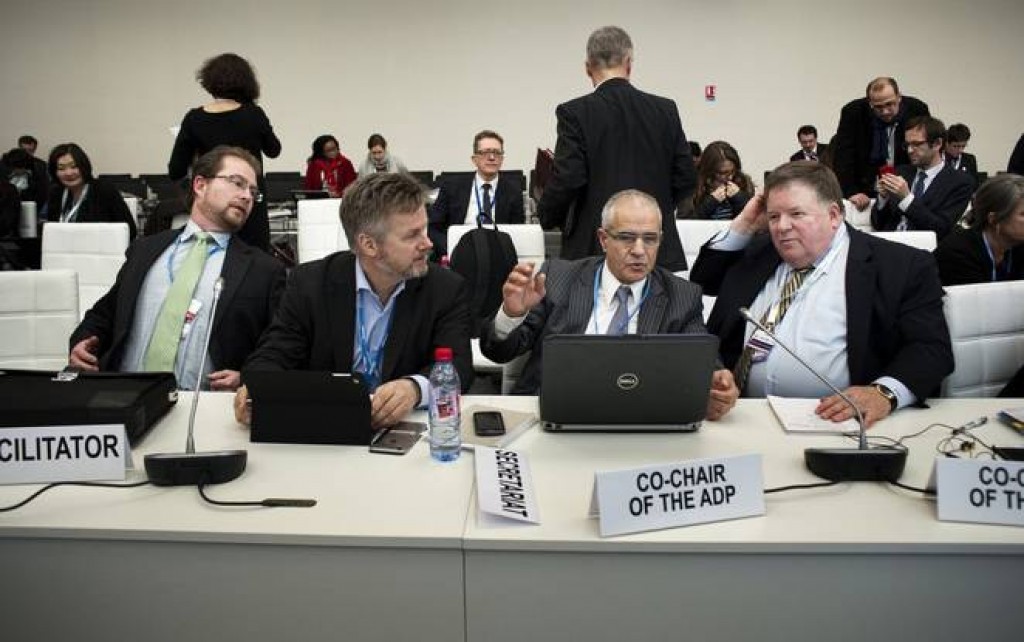RECOMMENDED VIDEOS

Yayasan Inovasi Malaysia : YIM Ideation Module and Programmes
Yayasan Inovasi Malaysia

University of Malaya : Research and Development - Converting…
University of Malaya

Green Routes
Green Routes (Stirling) Ltd

WWF Malaysia : Conservation Projects
WWF-Malaysia

Tokyo Metropolitan Government, Bureau of Sewerage : Sewerage…
Tokyo Metropolitan Government, Bureau of Sewerage
Related Stories
IE Expo 2021: South China's Leading Trade Fair for Environmental Technology Solutions
IE Expo 2021: West China's Leading Trade Fair for Environmental Technology Solutions
IE Expo 2021: Asia's Leading Trade Fair for Environmental Technology Solutions
IE Expo 2020: Trade Fair for Environmental Technology Solutions
IE Expo 2020: Asia's Leading Trade Fair for Environmental Technology Solutions
06 Dec, 2015

Here’s what negotiators at the UN climate talks have done so far
Others | FRANCE | 06 Dec, 2015
Published by : Ecotechtube
The first week of negotiations working towards an international agreement to counter climate change is coming to a close. The event opened with many speeches from heads of state from around the world. The week has also brought a series of big announcements from side events, like the opening of Europe’s largest solar park and a multibillion dollar public-private incubator to develop new clean technologies.
But the real work of the negotiations happens between delegations at Le Bourget, just outside of Paris, in airport that’s been converted for the conference. There, negotiators are tasked with finalizing the language and terms of the agreement. Here, we take a look at what’s been done so far, but it’s good to keep in mind that the text is still a working document, and the details will likely be debated until the very last moments.
The draft text has been whittled down
A draft text of the agreement was about 90 pages last month, but that was deemed too lengthy by top officials. This week, negotiators worked the text down to about 50 pages, which was released on Thursday, and may further shorten the document. Currently, the text is full of brackets, which indicate possible language choices that must been agreed upon.
You can read the draft here.
5 year reviews
The Paris agreement technically wouldn’t begin until 2020, and whatever the parties agree to now needs to be reviewed and added to if we want to limit the average global temperature rise to 2 degrees C. A review and “ratcheting” mechanism would be a helpful way to follow up on the promises governments are making at the talks.
The European Union, China and the U.S. supported a five-year review period. Some nations had concerns about that timeline, but on Wednesday UN climate chief Christiana Figueres said that “it seems now there is a growing consensus that (reviews) will be every five years.”
Still much to be decided
According to conference organizers, negotiators are expected to submit a new draft text by Saturday afternoon, Paris time. Further negotiations formally continue Monday, but much work is also done during informal socializing and during meals. By the end of next week, all of the parties must reach a consensus in order for the agreement to be adopted by the UN.
Financing climate adaptation and a transition to a lower-carbon economy appears to continue to be a major point of contention. Countries with developed economies, which historically benefitted from burning fossil fuels, are being asked to pay less developed countries to help deal with the effects of climate disasters as well as helping them to build green economies. According to the International Institute for Sustainable Development, which offers daily recaps of the negotiations (in highly technical terms), some members of the group negotiating the terms of climate finance expressed concerns about a lack of progress.
Mixed reactions
Are the Paris talks going well? That depends a lot on who you talk to. Outside the talks, some indigenous leaders began calling the talks a failure before they even started, saying that the talks wouldn’t go far enough to stop the use and development of fossil fuels.
Other observers seem cautiously optimistic. That has a lot to do with how much countries have already promised to do before going into negotiations. The engagement of some major sub-national governments, like city mayors, also seems promising.
